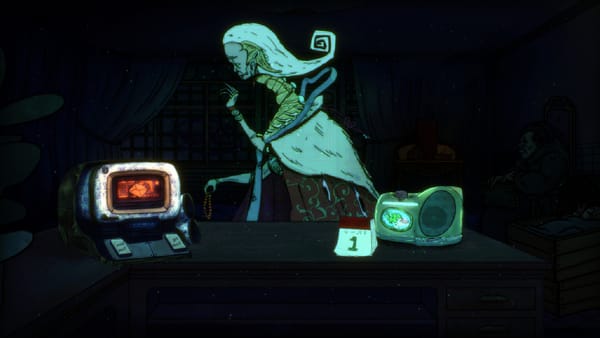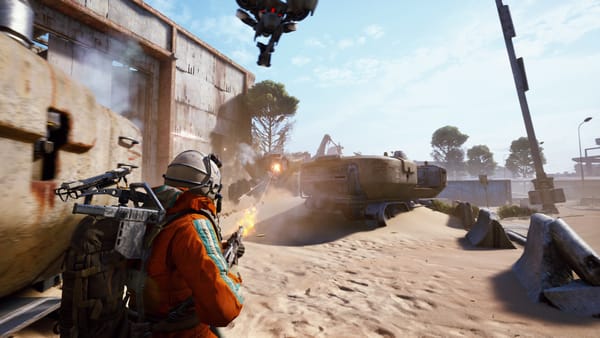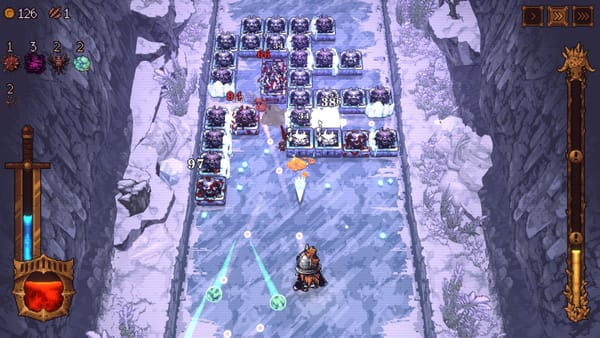What can the last decade of games journalism tell us about the next?
Is there any hope on the horizon?

My guest for this issue of Multiplier is Matthew Hewson, the editor of Player2.net.au. Hewson has been heading up the locally-based and independent Australian games media outlet since 2015. You can find his work on the site itself, which you can also follow on Bluesky.
Fergus: Back in 2014, I was still very much finding my feet in Australia’s games media landscape. I was writing for the odd zine and various US-based outlets between my classes at uni. Every day involved juggling work, study, play and then the part where you somehow find the time to write about what you played. It was hard to balance everything, from both a time and money perspective.
Thinking back, I likely told myself the money would come with time. Games were only getting bigger and bigger with each year, and so it seemed to be the case for the games media landscape. In retrospect, it’s hard to know how much of that perspective was warped by the outsized presence that games journalism has on Twitter (which was my social media haunt of choice) or my own youthful naivety. In either case, Australia back then was a vibrant garden of homegrown hobbyist publishers and local branches of massive media brands like Gamespot, IGN, GameInformer and CNET.
The vibe has shifted pretty starkly since then. These days, if it isn’t a week when the games industry suffers a round of layoffs then it’s usually one where games media does and Australia has been hit hard in this regard. It’s getting harder and harder to imagine a better future for the local games media scene and easier to see a world where it goes extinct entirely. If the past is prologue, then what can the last decade of games media disruptions tell us about the next?

Matt: It is a tough thing to ponder isn’t it? 10 years ago I was just starting my own thing with the goal of giving people opportunities to dip their toes into games media and a chance to learn so that they could move onto bigger and better roles in what was, at the time, an industry that had careers.
Sadly, those careers no longer exist. There are less than a handful of writers with stable jobs in Australia and freelancing is almost impossible due to the shrinking (or non-existent) budgets the surviving outlets need to live with. This doesn’t bode well for the future of the industry in Australia. That doesn’t mean there is no future, just one that will be supported by independent outlets staffed by passionate writers who have stable employment elsewhere.
This creates its own problems though. Despite my early dreams of turning my own venture into something massive, I now know there is only so much you can do as an indie in the media. Opportunities for coverage, be it interviews with developers, trips to conventions or even just getting review code early enough to complete the game before embargo, are much harder to come by which then leads to a landscape that is doing its best, but is falling behind in an industry where falling behind can mean the difference between life or death.
The other thing that is a real issue for independents is the rising cost of simply hosting a website. I know firsthand just how expensive it can be to run an indie and those costs are only rising. With almost no advertising money coming into the industry, that means these websites need to self-fund in a cost-of-living crisis. It is very hard to ask readers to pony up some cash every month when so many people are struggling financially.
This all paints a pretty bleak picture of what is to come. I’ve said this before but I often feel that people like us are the last ones left on the plane, madly trying to get it flying again before it crashes into a mountain. We know we have no realistic chance of avoiding the crash, but we are trying regardless because we believe wholeheartedly in what we are doing.
Fergus: Look, I didn’t mean for this to turn into such an exercise in defeatism but it's become painfully difficult to feel all that optimistic about our specific corner of the web these days. If the situation gets any attention online, it’s rarely good news and never comes with any silver lining or promise of light at the end of the tunnel. Worse still, when you’ve spent so much of your life wanting to write about games, the idea that it might go away or enter a period of terminal decline can feel a little close to home.
My usual antidote to that is to step back from things and try to think about the big picture. History doesn’t feel nearly so personal and — in the long run — Australian journalists being able to make a living writing about video games is more of an anomaly than the norm. For most of history, that hasn’t been the case and (in some respects) we are lucky to exist in the window of time where it is.
To build on that, most media outlets are products of their specific time, place and economic circumstance. That was the case for blogs like Kotaku Australia as much as it was for magazines like HYPER. This is not to erase the role that various actors have had in the destruction or decline of either title, but to say that you could not have built up the audience for each publication in the other’s specific window of history. It is not the case that there is no fertile ground for games journalism in 2024 so much as it is the case that that ground has shifted.
I believe this is a big part of why we’ve seen a lot of the reader-supported and worker-owned outlets crop up over the past few years. Even if the specific conditions (and existing audiences) required to make something like Remap or Aftermath or 404 Media are far from universal, they are unique to this moment in history. Given how poorly mainstream media continues to handle games and tech (plus how committed Google seems to be in its efforts to strangle independent media), I suspect that the future of games writing in Australia is going to be a largely non-commercial one because that’s what the material conditions seem to favor above all else.
Matt: I too try to avoid the doom and gloom, yet the constant bombardment of bad news always seems to get the better of me. Aftermath and the like are great however I do worry that it will ultimately be unsustainable once the good feeling wears off. I really hope I am wrong though. I am not sure that an Australian outlet could repeat that method successfully either. Sadly, the numbers are against us in that regard.
I do however want to point out that Australia has the best games media on the planet. That is not simply national pride, but something I truly believe. Based on our population and distance from the rest of the planet we are truly punching above our weight in regards to quality of coverage. I think personally it comes from the fact that for the most part, we all want each other to succeed. I get the feeling that overseas, especially in the US, it is a rather cutthroat industry, where people are fighting for gigs. Here it is a completely different story and it always has been. I have never had to look far for advice or assistance with dozens of writers always willing to lend a hand or point me in the right direction. Does it come from a “Us vs the rest of the world” mentality? Possibly, but more likely I think as a group we just appreciate others that share the same passions and desires.
This has led to an incredibly talented pool of writers working for bugger all (or simply nothing at all) because their passion has been supported since they put their first words on the virtual page. Everyone in Australia is doing this because they care, because they love it and because they believe in games media. You only have to sit around the table with a group of Aussie journos and writers to realise just how amazing it is to be involved in a community like that. That, more than anything, tells me that no matter how bad things get over here, there will always be games media coverage of a world class level coming from the land down under. People may have to look a little harder to find it, but it will always be there.




